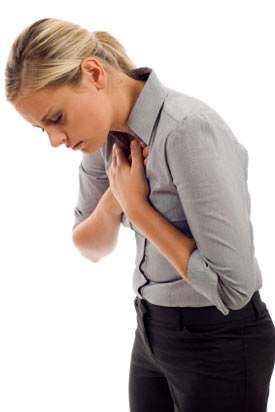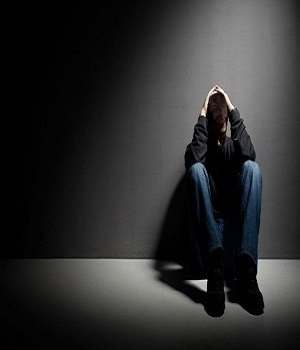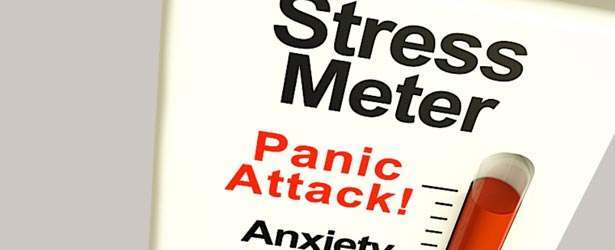
Causes and Symptoms of Anxiety
What is Anxiety?
Anxiety is our body’s natural reaction to a perceived threat or danger. This response may include feelings of worry, fear or nervousness, and over time may lead to depression. Within moderation, anxiety can be useful: it helps us to focus, spurs us to action, and helps us solve looming problems. Persistent or overpowering anxiety can lead to serious conditions, such as Generalized Anxiety Disorder or GAD. Understanding anxiety causes can help detect the symptoms of anxiety.
Symptoms of Anxiety
Physical symptoms of anxiety may include:
- Trembling
- Upset stomach
- Muscle tension
- Headaches

- Diarrhea
- Nausea
- Heart palpitations
- Sweating
- Flushed face
The emotional symptoms of anxiety include:
- Irritability
- Trouble concentrating
- Restlessness
- Nervousness and apprehensiveness
- Insomnia
- Feeling as though your mind is going blank
- Believing only in the worst possible outcomes
Causes of Anxiety
There are multiple theories about how anxiety and its causes develop. It is usually a combination of genetic, psychological, physical, biological, and life experiences. External factors that can trigger anxiety include:
- Stress from personal relationships, whether marital, family, or friendship
- Emotional trauma from a death or separation from loved ones
- Workplace stress
- Having been victimized by a crime
- Financial stress
- A serious or chronic illness
- Medication side effects
- Intoxication or chemical dependency
Our body’s reaction to these events is what triggers the anxiety. The amygdala, an almond-sized organ within the brain, performs a primary function in forming and storing memories connected to emotional events. This organ triggers the body’s flight or fight response to threatening situations and controls our anxiety.
An imbalance of chemicals and neurotransmitters in the brain may be the cause of Generalized Anxiety Disorder (GAD). Two of these transmitters, noradrenalin and serotonin, are believed to influence anxiety. When the levels of these chemicals are out of balance, they may cause mood swings or increase the chances of an anxiety-related condition like GAD.
Types of Anxiety
Experts have identified six major kinds of anxiety disorders. Each has its own distinctive symptoms. These disorders are:
- Generalized Anxiety Disorder (GAD)
- Obsessive Compulsive Disorder (OCD)
- Panic Disorder (or anxiety attacks)
- Phobias
- Post-Traumatic Stress Disorder (PTSD)
- Separation Anxiety
- Social Anxiety Disorder (SAD)
 Generalized Anxiety Disorder: People suffering from GAD worry endlessly and are constantly nervous and panicked about every possible activity or event.
Generalized Anxiety Disorder: People suffering from GAD worry endlessly and are constantly nervous and panicked about every possible activity or event.
Obsessive Compulsive Disorder: This is a disorder that causes sufferers to have unwelcome or recurring feelings, thoughts, or sensations which drive them to compulsively repeat certain behaviors. Examples of these obsessive behaviors include worrying about germs or keeping items in a precise order. Examples of compulsive behavior include counting objects, zealously avoiding cracks in the sidewalk, or fanatically refusing to touch doorknobs.
Panic Disorder: This anxiety disorder causes an individual to suffer recurring episodes of intense fear that things are going wrong or that something terrible is going to happen.
Phobias: A phobia is an irrational fear that results in the sufferer deliberately avoiding the feared object, situation, or activity in a way that interferes with their ability to function. Some common phobias and anxiety causes include fear of heights, open spaces, air travel, insects, and social anxiety.
Post-Traumatic Stress Disorder (PTSD): This is an intense anxiety disorder that occurs following a life-threatening or traumatic event.
Separation Anxiety Disorder: A disorder normally experienced by children, Separation Anxiety Disorder occurs when a child becomes exceedingly upset at the thought of being separated from their care-giving adults, typically a parent.
Social Anxiety Disorder: An overwhelming, persistent fear of a possible embarrassing, humiliating interpersonal situation. Extreme shyness can be considered to be Social Anxiety Disorder. In severe cases, people with SAD may avoid social situations entirely.
TOP 5
ANXIETYTreatments |
|||||
| AnxiClear | Exulin | Hapinex | MindSoothe | ReloraMax | |
|---|---|---|---|---|---|
| 1 | 2 | 3 | 4 | 5 | |
| Overall Rating | 99.50% | 87.30% | 82.10% | 76.80% | 72.80% |
| Performance* |





|





|





|





|





|
| Speed of Results* | Extremely Fast | Good | Good | Average | Average |
| Quality of Ingredients | Premium | Good | Good | Average | Unknown |
| Customer Satisfaction Evaluation | 99.40% | 85.30% | 80% | 74% | 70.30% |
| Safety Evaluation | Safe for Use | Safe for Use | Safe for Use | Safe for Use | Safe for Use |
| Customer Service Rating |





|





|





|





|





|
| Reorder Rate | Highest | Good | Average | Average | Average |
| Return Policy | Risk Free | Unopened | Unclear | Good | Risk Free |
| Success Rate* | 99.40% | 86.20% | 81% | 74.50% | 69% |

 Subscribe Now
Subscribe Now











